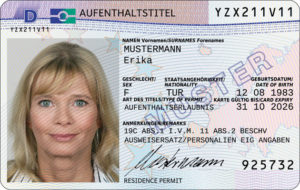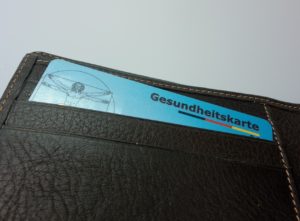
Residence in Germany
A Visa allows you to enter Germany, and stay for no more than 90 days in a 180-day cycle.When you want to stay in Germany
Everything you need to know about finding work in Germany, what your resume must look like, recognition of studies, vocational careers, medical, pension and taxes.
When it comes to working in Germany, one must be aware of the various types of employment visas available. These visas can range from temporary to permanent, and may differ in eligibility requirements depending on your specific circumstances.
New Skilled immigration Act – Changes will be implemented in phases, in November 2023, March 2024 and June 2024.
Detail about the changes can be found on the Make it in Germany website
Here is a link to the official Information about the Fachkräfteeinwanderungsgesetz (Skilled Immigration Act). Currently it is only available in German.
The latest information in English can be found Anerkennung-in-deutschland website and Make it in Germany website
According to the German Embassy in South Africa, you can apply for the following types of Long Stay visas, if you want to work in Germany:
| Type of Visa | Additional Info | Make it in Germany link | Residence Act |
| Blue Card | University degree and minimum salary per year. It has more benefits than other employment visas |
EU-Blue Card | |
| Skilled worker holding a University degree | Work visa for qualified professionals | Section 18b of the Residence Act (AufenthG) if holding a university degree | |
| IT specialist with professional experience | – Visa for IT professionals – IT Specialist in Germany |
Section 18a or 18b of the Residence Act (AufenthG) for skilled workers with a vocational training qualifications | |
| Research | Section 18d-f of the Residence Act (AufenthG) Temporary residence permit for mobile researchers | ||
| – Work visa for qualified professionals. – Craftspeople and Trade |
Section 18a of the Residence Act (AufenthG) for skilled workers with a vocational training qualifications | ||
| Work in case of partial recognition of qualification | Visa for recognition of foreign qualifications | Section 16d of the Residence Act (AufenthG) Measures regarding the recognition of foreign professional qualifications | |
| Crew Members or River Cruise Vessels | |||
| ICT Card for intra-corporate transferees | Section 19 of the Residence Act (AufenthG) Measures regarding the recognition of foreign professional qualifications |
The list of in-demand professions is updated regularly. To see the current list, visit the Make it in Germany website from the Federal Government.

A Visa allows you to enter Germany, and stay for no more than 90 days in a 180-day cycle.When you want to stay in Germany

We are not immigration agents, and your first point of contact should always be the German embassy or consulate in South Africa.Most of the information

“German citizens or citizens from non-EU countries who have an Aufenthaltserlaubnis (residence permit) or a Niederlassungserlaubnis (settlement permit) are allowed to bring their relatives to

Long Term visas are seen as visits longer than 90 days and will typically be for work or study visits. If your application is approved,

This page is under construction, we are adding the new rules New Skilled immigration Act – Changes coming in November 2023 and March 2024. The

As rules and regulations can change on a regular basis, we provide links to the German Embassy in South Africa. Where possible also links to

Depending on the situation, it might be necessary to have either your Matric/Grade 12 or South African degree or other qualifications and experience formally recognised

It is important to have your CV or Resume in the correct format. In Germany the prefer a Resume for job applications. CV – a

Career coaching or counselling is professional advice and support to help you manage your education and career. This could be in the form of workshops,

In todays connected world it is important to manage your online professional identity. Many companies find potential staff via professional networks like LinkedIn, and they

The most popular approach to finding a job in Germany is to register directly on company job sites. This helps you keep track of all

Types of learning institutions Hochschule is the name for higher education. Under this, you can get the following institutions. Fachhochschule – University of applied sciences.
You can set up your own business in two ways, one is to work as a freelancer or as a self-employed entrepreneur (Gewerbe).
If you want to work as a freelancer in Germany, you will need to apply for a Residence permit for the purpose of freelance employment.
Freelance occupations can be practised for so-called Liberal professions (Freie Berufe) and can include artists, writers, language teachers, engineers, auditors, interpreters, Business or management consultants, architects, translators, and surveyors.
Healthcare workers like doctors, dentists, vets and physiotherapists also fall under liberal professions.

The following Social Insurances are payable in Germany when you are a full-time employee or trainee: Krankenvesicherung / Medical Insurance Plegeversicherung / Long Term care

We receive a lot of questions about income tax declarations and where to get help, especially getting help in English.First I have to state that

Homepage of the Deutsche Rentenversicherung Information about the German state pension scheme can be found on their homepage for foreign languages. The German site has a lot more information.

Health insurance is mandatory for everyone visiting or living in Germany.When living in Germany you can either take our private (privaten Krankenversicherung – PKV) or
You must be logged in to post a comment.